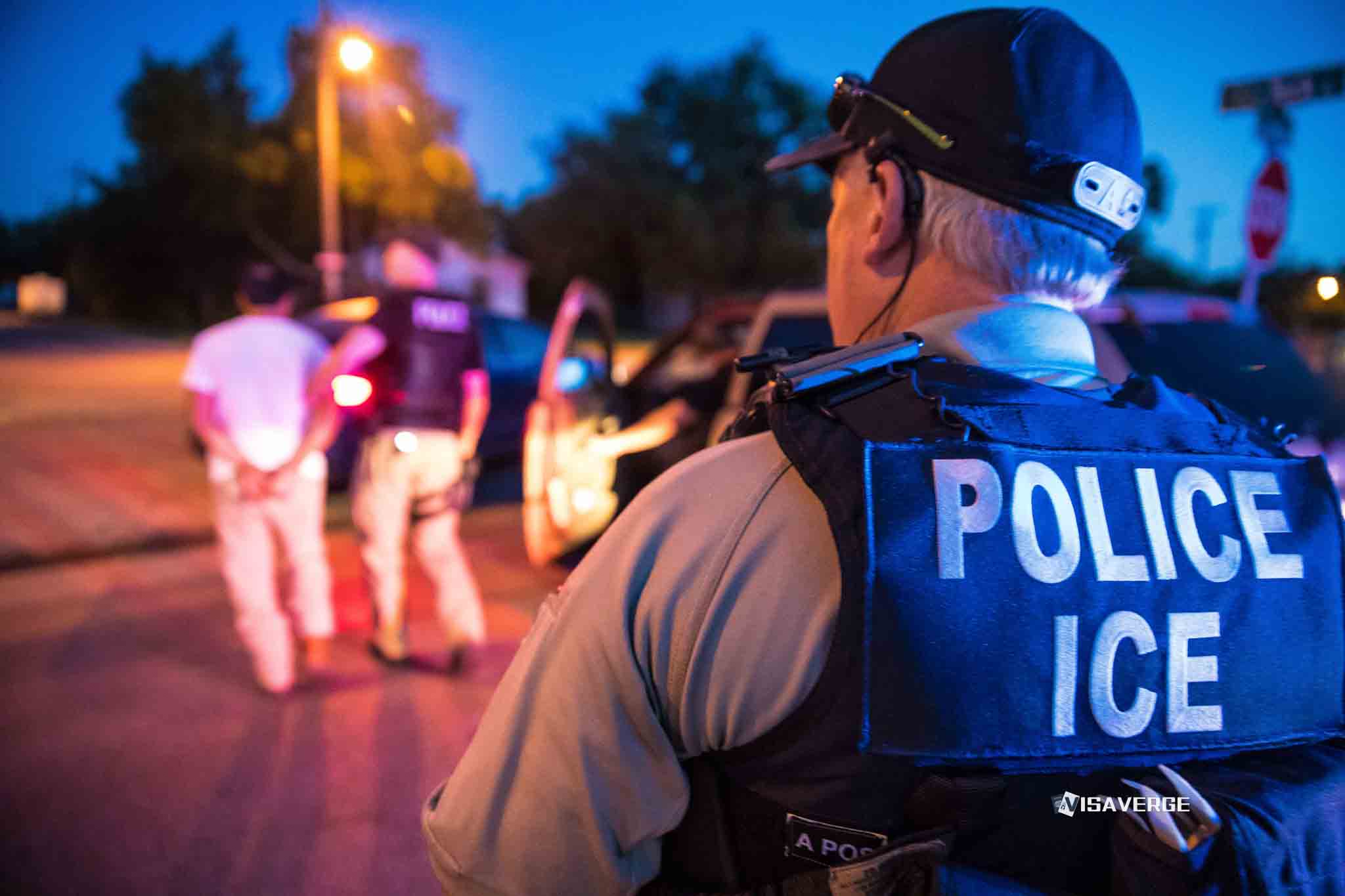Key Takeaways
• Wales’ Nation of Sanctuary plan supports 1,568 sanctuary seekers from 89 countries with 8,398 advice sessions.
• New UK laws bar citizenship for arrivals via irregular means after February 10, 2025, causing Welsh opposition.
• Refugee Week 2025 emphasizes community role; Welsh Government champions integration despite UK immigration restrictions.
Wales’ Ambitious Push to Become a Nation of Sanctuary: Refugee Week 2025 Highlights Progress and Challenges
As Refugee Week 2025 unfolds from June 16 to 22, the spotlight shines brightly on Wales and its ongoing efforts to become a true “Nation of Sanctuary.” This year’s theme, “Community as a Superpower,” captures the spirit of Wales’ approach—one that puts dignity, safety, and hope at the center of its policies for refugees and asylum seekers. With new UK immigration laws stirring debate and local services under pressure, Wales’ journey offers a unique look at how a country can strive to welcome those seeking sanctuary, even when national policies make it harder.

What Is the Nation of Sanctuary Plan?
Wales’ Nation of Sanctuary plan, launched in 2019 and endorsed by the United Nations, is a 23-point roadmap that covers every part of life for asylum seekers and refugees. The plan aims to make Wales a place where people fleeing danger can rebuild their lives with dignity. It covers:
- Housing: Helping refugees find safe, stable homes after leaving asylum accommodation
- Education: Making sure children and adults can attend school, college, or training
- Employment: Supporting access to jobs and skills development
- Health: Ensuring everyone can get medical care, including mental health support
- Integration: Encouraging community involvement and breaking down barriers to participation
The Welsh Government, led by Minister for Social Justice Jane Hutt, has made it clear that this vision is about more than just words. It’s about practical action, ongoing policy updates, and listening to those with lived experience.
Refugee Week 2025: Community as a Superpower
Refugee Week 2025 is more than a celebration—it’s a call to action. Across Wales, events highlight the contributions of sanctuary seekers and the communities that welcome them. The Welsh Refugee Council, which runs the Wales Sanctuary Service, reports that between April and December 2024, it supported 1,568 sanctuary seekers from 89 countries, delivering 8,398 advice sessions in 57 languages. These numbers show both the scale of need and the commitment to meeting it.
During Refugee Week, policymakers, charities, and people with lived experience come together to share stories, discuss challenges, and push for change. The focus on “community” reflects the belief that everyone in Wales has a role to play in making sanctuary real.
Recent Policy Changes: UK Laws and Welsh Responses
While Wales sets its own policies in areas like health, education, and housing, immigration law is controlled by the UK government in Westminster. This creates tension, especially as the UK has recently passed new laws that many in Wales see as unfair or even harmful.
Key UK policy changes include:
- Border Security, Asylum and Immigration Bill (2025): This bill repeals some of the strictest parts of the previous Illegal Migration Act and ends the Safety of Rwanda Act 2024. However, it also introduces new restrictions, such as barring anyone who arrives via irregular means after February 10, 2025, from ever obtaining British citizenship.
- Criticism from Wales: Welsh officials, advocacy groups, and opposition parties like Plaid Cymru argue that these changes go against the 1951 UN Refugee Convention, which says people fleeing danger should not be punished for how they arrive. They warn that the new rules could force more people into dangerous journeys and make it harder for families to reunite.
Jane Hutt, the Minister for Social Justice, has called for urgent reform and a focus on anti-racism, saying that Wales must “break down systemic barriers” and ensure sanctuary seekers have real access to education, jobs, and housing.
How the Nation of Sanctuary Plan Works in Practice
The Nation of Sanctuary plan is not just a policy document—it’s a living framework that guides real services and support across Wales. Here’s how it works for those seeking sanctuary:
1. Arrival and Initial Support
When asylum seekers arrive in Wales, they are referred to the Wales Sanctuary Service. This service provides information about their rights, helps them find housing, and connects them to essential services like healthcare and legal advice.
2. Accessing Services
Support is available in all 22 Welsh local authorities. This means that no matter where someone is placed, they can get help with:
– Finding a place to live
– Enrolling children in school
– Accessing health services, including mental health care
– Getting legal advice on their asylum claim
3. Integration Pathways
Once someone is granted refugee status, the focus shifts to helping them settle in for the long term. This includes:
– Support to find work or further education
– Language classes and digital skills training
– Help for vulnerable groups, such as children, survivors of domestic abuse, and trafficking victims
4. Ongoing Advocacy
Wales encourages people with lived experience to speak directly to policymakers. Events like “Sanctuary in the Senedd” give sanctuary seekers a platform to share their stories and shape future reforms.
Quantitative Data: The Numbers Behind the Policies
The scale of sanctuary work in Wales is significant, especially when seen in the context of UK-wide trends:
- Asylum Applications: In the year to March 2025, the UK received 85,112 asylum applications (covering 109,343 people), a 15% increase from the previous year.
- Accommodation: The use of asylum hotels in the UK fell by 15% in the year ending March 2025, with 32,345 people accommodated, down from a peak of 56,042 in September 2023.
- Asylum Backlog: The UK asylum backlog stands at 78,745 cases (190,536 people), the lowest since September 2021.
These figures show both progress and ongoing challenges. While the backlog is shrinking, the number of people needing support remains high.
Key Stakeholders: Who’s Involved?
Several groups play a central role in Wales’ Nation of Sanctuary efforts:
- Welsh Government: Sets the overall vision and funds key services.
- Welsh Refugee Council: Delivers frontline support and advocates for policy change. Notably, 80% of its staff have been through the asylum process themselves, bringing real understanding to their work.
- Plaid Cymru: The main opposition party, which has criticized recent cuts (like the removal of the Welcome Ticket for free public transport) and opposes UK government plans to raise visa fees and thresholds.
- Refugee Council (UK): CEO Enver Solomon has warned that restricting family reunification and legal routes will push more people into dangerous journeys, calling for more humane policies.
Practical Effects: What Does This Mean for Sanctuary Seekers?
The Nation of Sanctuary plan aims to make a real difference in people’s lives. Some of the practical effects include:
- Housing: Refugees leaving asylum accommodation get help finding stable homes, reducing the risk of homelessness.
- Employment and Education: Support to access jobs and training helps people rebuild their lives and contribute to their new communities.
- Health and Wellbeing: Special attention is given to mental health needs, with efforts to reduce barriers to care.
- Language and Digital Skills: Classes and training help sanctuary seekers communicate, find work, and access services.
- Support for Vulnerable Groups: Survivors of domestic abuse and trafficking receive tailored help.
However, there are also setbacks. The removal of the Welcome Ticket, which gave free public transport to refugees, has been widely criticized as a step backward. Advocacy groups argue that such changes make it harder for sanctuary seekers to access jobs, education, and community life.
Challenges: The Limits of Devolved Power
One of the biggest challenges Wales faces is that immigration law is not devolved. This means that while Wales can set its own policies in areas like housing and health, it cannot change the rules on who can claim asylum or how claims are processed. As a result, Welsh authorities often find themselves working around UK-wide laws they disagree with.
For example, the new UK rules barring citizenship for anyone arriving irregularly after February 10, 2025, are seen by many in Wales as unfair and possibly illegal under international law. Welsh officials and NGOs are expected to play a key role in upcoming legal challenges to these rules.
Multiple Perspectives: What Do Different Groups Say?
- Welsh Government and Advocacy Groups: They argue for a distinctive, humane Welsh response, focused on rights and integration, not punishment.
- Academic and NGO Reports: Studies show that Wales’ approach helps with integration and mental health, but warn that UK-wide legal limits and lack of safe, legal routes remain big problems.
- Critics: Groups like Plaid Cymru and refugee organizations say that recent UK policy changes undermine Wales’ sanctuary ambitions and could breach international law.
Historical Context: How Did Wales Get Here?
- 2019: Wales formally declared itself a Nation of Sanctuary, launching its comprehensive plan with UN support.
- 2022–2023: The UK government passed the Nationality and Borders Act and the Illegal Migration Act, making asylum rules stricter. Wales opposed these changes.
- 2024–2025: Wales continues to update its Nation of Sanctuary plan, with ongoing tension between devolved and reserved powers.
Future Outlook: What’s Next for Wales as a Nation of Sanctuary?
The Nation of Sanctuary plan is under constant review. There are growing calls for more devolution of powers so Wales can fully realize its vision. Legal challenges to new UK rules are expected, with Welsh officials and NGOs likely to play a leading role.
Community engagement remains strong. Refugee Week 2025 and other public events are expected to keep sanctuary issues in the spotlight, building greater support and awareness across Wales.
How to Access Support: Step-by-Step Guide for Sanctuary Seekers
If you are seeking sanctuary in Wales, here’s what you can expect:
- Arrival: You will be referred to the Wales Sanctuary Service, which will help you understand your rights and connect you to housing and services.
- Accessing Services: Support is available in every local authority, including help with accommodation, education, health, and legal advice.
- Integration: Once you have refugee status, you can get help finding work, learning English, and joining community activities.
- Advocacy: You can share your experiences and help shape future policies through events like Sanctuary in the Senedd.
For more information, you can visit the Welsh Government’s official Nation of Sanctuary Plan page.
Conclusion: Wales’ Ongoing Commitment
Wales’ bid to be a Nation of Sanctuary is ambitious and ongoing. Despite the challenges posed by UK-wide immigration policy, Wales continues to lead with a rights-based, integration-focused approach. The coming months will be critical as new UK laws are tested and Wales seeks greater autonomy to fulfill its sanctuary commitments.
As reported by VisaVerge.com, Wales stands out for its practical support, community engagement, and willingness to challenge unfair policies. The journey is far from over, but the commitment to making Wales a true Nation of Sanctuary remains strong.
Actionable Takeaways for Readers:
– If you are a sanctuary seeker in Wales, reach out to the Wales Sanctuary Service or the Welsh Refugee Council for support.
– Community members can get involved by volunteering, attending Refugee Week events, or supporting local sanctuary initiatives.
– Policymakers and advocates should continue to push for fair, humane policies and greater devolution of powers to help Wales realize its vision.
For more resources and updates on Refugee Week 2025, visit businesswales.gov.wales/news-and-blog/refugee-week-2025.
Wales’ journey as a Nation of Sanctuary is a powerful example of how a country can strive to welcome and support those in need, even in the face of complex legal and political challenges. The story continues, with community as its superpower.
Learn Today
Nation of Sanctuary → A Welsh government plan to provide refugees safe, dignified support across housing, education, and employment.
Refugee Week → An annual UK event highlighting refugee contributions and promoting refugee rights and community support.
Asylum Seekers → Individuals seeking international protection who have not yet been legally recognized as refugees.
Devolved Powers → Government authorities transferred to Welsh institutions to manage local matters like health and housing.
Illegal Migration Act → UK legislation imposing stricter rules on immigration and asylum, affecting refugee rights and processes.
This Article in a Nutshell
Wales actively advances as a Nation of Sanctuary, supporting refugees with housing, education, and health services. Despite UK immigration law challenges, the 2025 Refugee Week showcases strong community commitment and ongoing efforts to ensure sanctuary seekers’ dignity and integration across Wales.
— By VisaVerge.com














I am totally shocked. Why would Welsh people wish to have often illegal immigrants moving to their beloved beautiful country? Being supported financially and taking housing and essential services from local people. Whoever thought this idea up is not the sharpest tool in the shed. I am totally aghast and know that my ancestors would be turning in their graves. I distinctly remember when some Welsh people would burn down holiday makers cottages, which was rather harsh. Have the woke party infiltrated Plaid? If so, I do hope that Reform are voted in and these Plaid Cymru are promptly removed.
This is not what we want, Anglesey alone is changing, not for the better. More people, we don’t want and less jobs and no money!
Well said Adrian Meyer, can I ask, is this public knowledge in Wales?